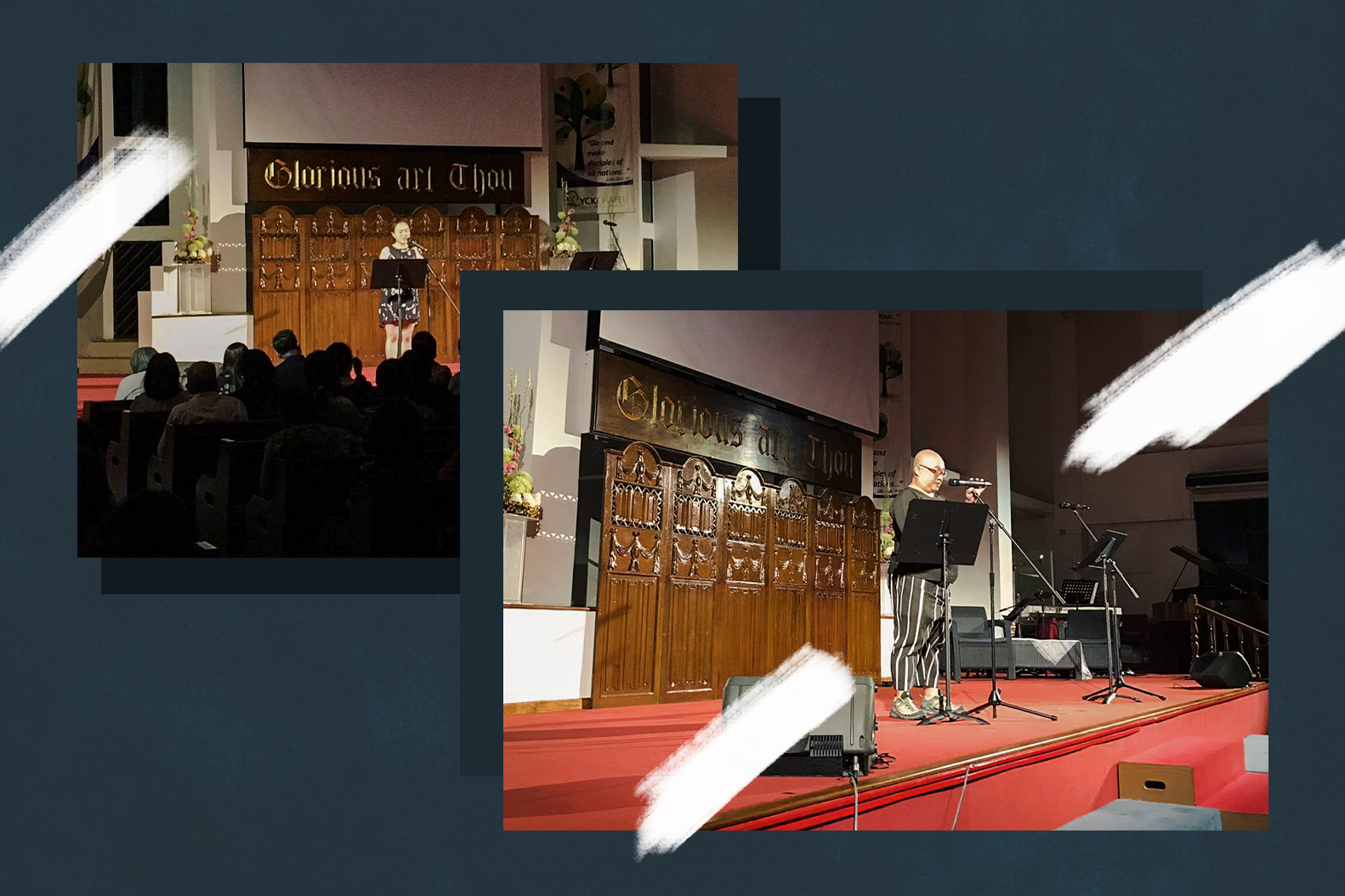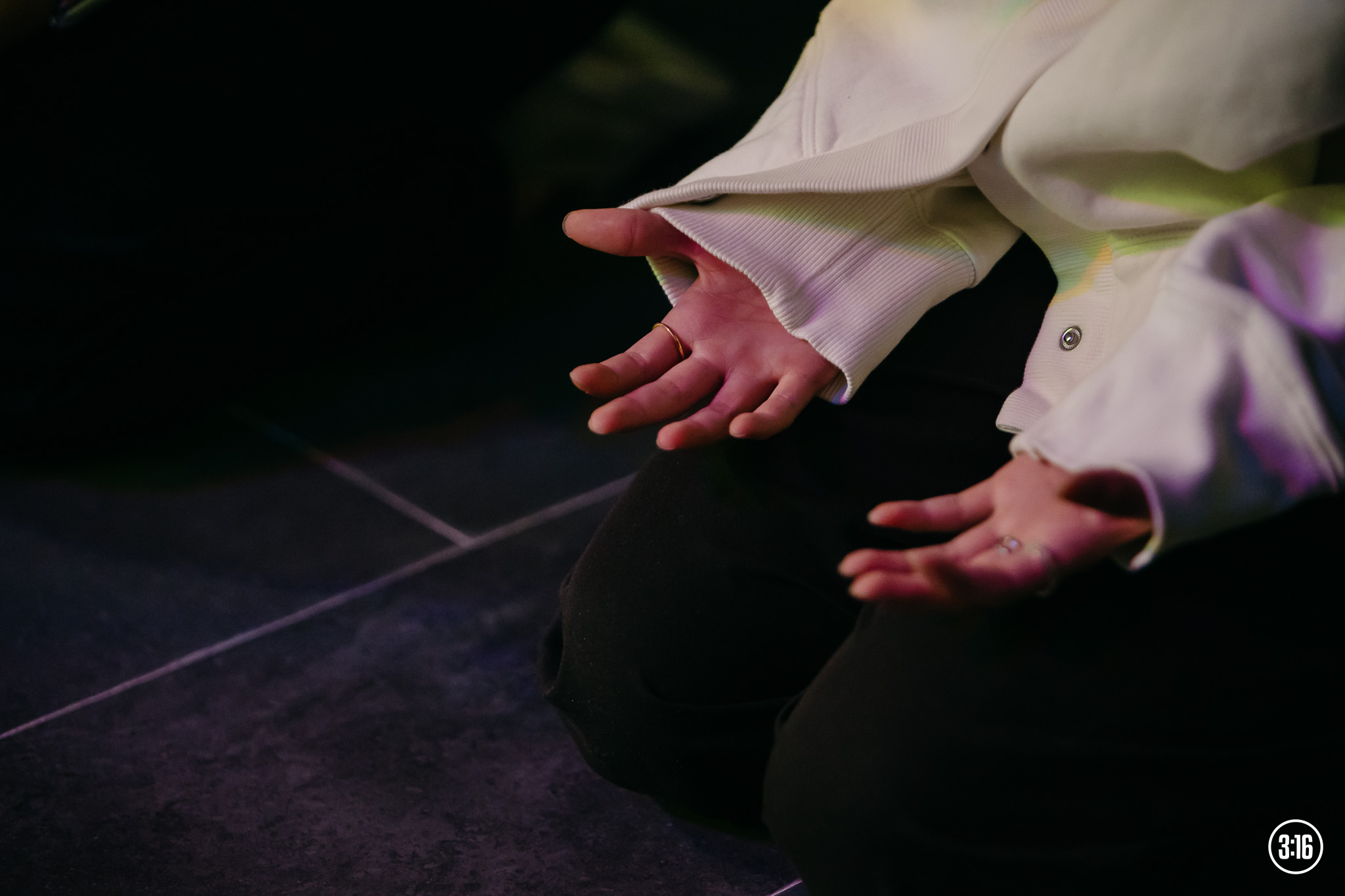“I want to start with an unapology,” Pastor Adrian Ow of Yio Chu Kang Chapel (YCKC) told the 300-plus strong audience at The Church and Mental Wholeness Conference last Saturday. “If anyone feels the sharing is too raw and discomforting, I’m unapologetic.”
“Because we need to remove the stigma of mental health and share openly what we face.”
In a 2017 survey done by the National Council of Social Service in Singapore, seven in 10 respondents believed that persons with mental health conditions experience stigma and discrimination in their daily lives. Yet more than five in 10 respondents were not willing to live with, live nearby, or work with a person with mental health condition.
Held from September 12-14, 2019 at YCKC and in partnership with publishing company Graceworks, The Church and Mental Wholeness Conference aims to deepen the Church’s understanding of mental health and its vital role in tackling this issue.
One of the sessions involved a reading of Good News for Bruised Reeds – Mental Health & The Gospel Community. Launched at the conference, the book chronicles the real-life journeys of both sufferers and caregivers of mental illness.

Dr Tan Soo Inn, chairman of Graceworks, explained the heart behind collecting and sharing these stories: “Bruised Reeds is not a prescriptive book, but first and foremost an attempt to listen to stories of people who are actually going through mental illness.”
“Sometimes we say things that are more hurtful than helpful. If we start with stories, maybe we will be more informed,” he said.
And that’s where I found myself on the second night of the conference: Listening and tearing along with three writers as they bared their hearts on their personal battles with mental health. The stories covered a range of mental illnesses, each with a unique perspective as a patient, a caregiver and a pastor.
Here are two lessons I took away from that night:
1. MENTAL ILLNESS IS NOT A CHOICE
“Why are you so affected?” and “Why can’t you just get over it?” are common rhetoric a person suffering from mental illness gets slapped with. But listening to the stories shared, I realised that if they could escape from this mental prison, they would.
As a victim of anxiety attacks, Mike Wong would often find himself awake in the middle of the night with deep chest burns and panic attacks.
This anxiety would heighten whenever his stress level rises. One of the most painful years was 2015 when Mike was in charge of directing music videos and producing events to commemorate Singapore’s 50 years of independence.
This was it, my blackest black.
Describing his experience, he said: “I was taken hostage by this state of mind; there was no escaping it. I could not be in a shopping mall and I could not sit still to finish watching a movie… Soon I became a prisoner in my own room.”
Not only that, but a bout of flu that would eventually take away Mike’s sense of smell and taste, as well as a sudden affliction of tinnitus, would plunge him into what he describes as “the blackest of black holes”.
“As a painter who works with colours, I know there is a kind of black that makes it impossible for light to bounce off of it. It is like the darkness of a black hole that drowns light out completely. This was it, my blackest black, with my incessant panic attacks, no taste and smell, and now a 24/7 ringing sound in my ear so that I can never go to sleep again,” he recounted.
Why would anybody choose to suffer like that?

2. MENTAL ILLNESS DOESN’T MEAN A LACK OF FAITH
We also heard the story of Alice (not real name), a caregiver to her mother who is suffering from schizophrenia.
Whenever Alice and her father tried to explain that the hallucinations weren’t real, Alice’s mum would display the same persistence until they gave in to her. However, the turning point came when her mother received Christ into her life.
“A couple of days after she became a Christian, my mother had a psychotic episode,” wrote Alice. “Even though my father and I tried to pacify her and explain that the fear that she was experiencing was not rational, she replied that we were out to harm her as well.”
That was when Alice’s father suggested that her mother pray. “To my surprise, she complied and bowed her head to pray. After a long two-minute silence, she lifted her head and said: ‘God told me what I’m doing now is not right.'”
Just because we do not see immediate healing does not mean that we do not have faith in God.
Shocked by her mum’s admission, Alice said: “Nothing could describe how I felt when I heard those words. Did my mother just admit that she was wrong?… This time, something (or someone) got through to her.”
Slowly, things in the family got better. As she began to witness the transformation in her mother’s life, Alice started attending church together with her family. But another set of problems arose.
Despite their good intentions, church friends were dishing out uninformed advice to Alice’s mother like “have faith in God for healing, don’t rely on medication”. Alice’s mum soon stopped her medication against doctors’ instructions. This led to a major relapse, and she had to be hospitalised.
“Just because we do not see immediate healing does not mean that we do not have faith in God,” Alice concluded. “From my family’s experience, taking medication regularly and receiving good consultation from doctors was and continues to be an essential part of the journey for my mother to hear the Holy Spirit clearly daily, without confusion.”
Listening to the last speaker for the night, Pastor Andre Tan, it was again a reminder that it doesn’t matter how “spiritual” we are.
The lead pastor of The City Singapore admitted that while he was “doing all the things one should do as a Christian”, his own mental and emotional health was suffering. At one point, he even contemplated suicide.
“Pastors, though deeply spiritual and heavily involved in spiritual activity, are not immune to emotional and mental brokenness,” he shared.
What got Pastor Andre through was cultivating certain practices for his life, such as learning to slow down and keeping a weekly sabbath.
“I believe that breakthroughs and miracles can happen in a moment. But for me, my journey was one that required discipline and patience,” he said.
“Emotional health is not distinct and separate from our goal of spiritual maturity. If we want to experience the promise of scripture, of life in all its fullness, then we must be whole in body, soul and spirit.”
At the end of the day, I learnt that mental illness can affect anyone – just like any other ailment.
There’s still so much more that we don’t understand about mental health, but the Church cannot afford to avoid difficult topics like this. As it stands, the stigma surrounding mental illness is deterring sufferers from seeking timely, appropriate help. At the same time, it’s also creating a lot of misconceptions that leads to a lack of support for those struggling with mental health.
In closing, Dr Tan concluded: “(Bruised Reeds) is not a nice goodnight reading book. It’s a disturbing book. But maybe it’s disturbing that we need.”
Good News for Bruised Reeds – Mental Health & The Gospel Community is the second volume in the Good News for Bruised Reeds Series under Micah Singapore and Graceworks.
- What are your views on mental illness?
- How can you better support those who are struggling with a mental health condition?
- Are you incorporating self care or soul care into your routine?









